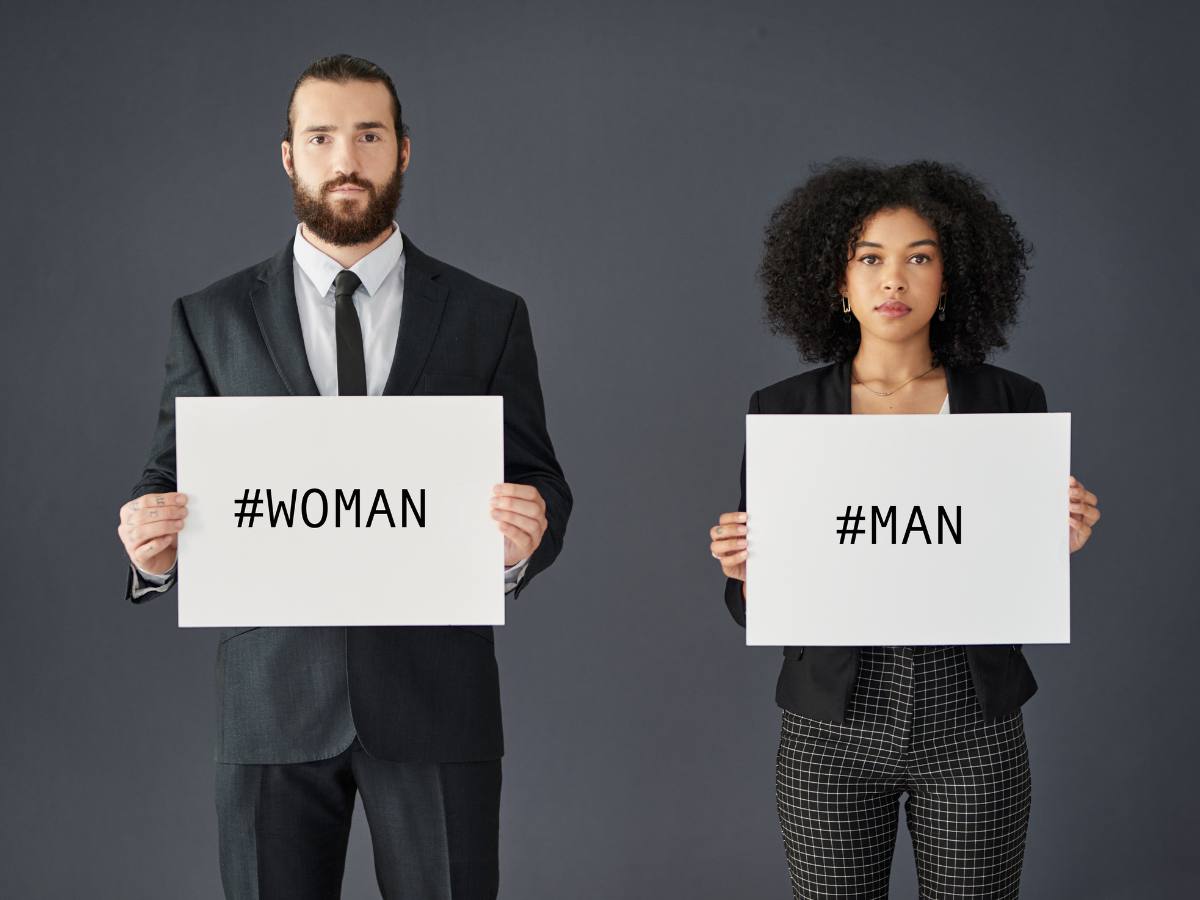Welcome to my second post on Motivational May Series. Please check out the main post for the details and schedule of the Motivational May series. In this post, we will discuss Nigerian women’s struggle to achieve gender equality. Women in Nigeria are, to this day, fighting for very basic rights that are denied to them because of the gender roles set by the culture. This post aims to create awareness about gender inequality and the damage caused by rigid gender roles.
This is also the goal set by my fellow blogger Blessing Bossman. She is a Nigerian writer, speaker, and lover of Christ who feels strongly about women’s empowerment. After sharing the statistical information about gender inequality in Nigeria and the influence of rigid gender roles in the state, I will feature the insightful interview of Nigerian blogger Blessing Bossman.
Q: 1: What made you aware of the gender inequality in your home country Nigeria?

Growing up as a kid, I never knew what gender inequality was. All I knew was that a woman was supposed to be in the house to take care of the kids and cook. This woman was my mom; that was her job, for which she received her payment by being called a married woman. Some women, even today, are still denied the right to education, and the major reason is poverty. Single girls are pressured into marriage once they graduate, but boys are asked to earn a living first.
A significant number of women are married off against their will. Girls in their 30s are seen as old women, but guys are not. Ladies are deprived of becoming leaders in our society, and people would rather not vote for them, not because they are not capable enough, but because they are women. Men beat up their wives at home and cheat on them, and when the woman decides to leave such a marriage, society begs her to stay and endure. They tell her to save her marriage. Now I am more aware of the injustice being done to the female gender.
Q: 2: How do you feel fixed gender roles in Nigerian households contribute to gender inequality?
“Women’s education ends in the kitchen” is the mentality of Nigerians. A woman’s place is in the kitchen, and she’s meant to do the chores and take care of the house, while the man is supposed to bring money for the family. Their backup for this act is the Bible. The Bible, which they do not read and understand what it says, they have only heard the Bible say so, but they never cared to read it for once. The Bible says, “A woman should be submissive to her husband, and her husband should love her.” What our Nigerian men see alone is the act of submission.
The submission they define is always staying at home and listening to their husbands. That isn’t submission, and submission means loyalty. Giving my all to you, I won’t share myself with another man because I am submissive to my husband. God also requires the man to love his wife as she is submissive to him. You can’t expect submission when there is no love. What is love? Love is loyalty, honesty, trust, and commitment.
Nigerian men do not practice love, which is why they beat up their wives or deprive them of chasing dreams. God did not create any gender to be less or more; he created us in his image and likeness so we can become one.
Nigerian men don’t want to see us women like that, they want to see us as less, and we are denied the right to earn a living. Gender roles were not supposed to be defined so rigidly; all of this happened due to ignorance when women were deprived of education because they felt it was a waste of resources. Women would stay at home while the men would go out and hustle. They felt all there was to a woman’s life was a man, and she couldn’t be a leader. All of this is ignorance and lack of understanding.
This has caused so many women pain because they are now dependent on their men and do not have a life of their own. And the men who do not practice love decide to exploit their weaknesses. I’m glad that the narrative is changing, women are no longer staying at home but working hard to earn a living.
Q: 3: How do you believe it affects Nigerian women’s lives?
Nigerian women, even today, are seen as house help; they are asked to quit their jobs or not go for higher positions. They are advised not to make more money than their husband and to condone cheating. Nigerian women are asked to keep quiet in the face of any injustice. They are asked not to be humans but women bought out of a man, so we owe them our lives. Our Nigerian men do not have a clear understanding. If they do, they would treat women right and stop seeing them as sexual figures.
They would stop beating her up and throwing her stuff out of the house when she started speaking up. They would not rape her when she refused sex. All sorts of ill practices are against the Bible, and they justify it using the Bible, which they have no clear understanding of.
Q: 4: What positive changes do you think gender equality can bring in Nigeria?
It will bring many changes as it will enable people to value marriage. It will also enable men to see their wives as more than submissive house help. Women would start going for top positions and become leaders. Women would receive great support in the home, and the men would know that it is not just a woman’s place to keep her home but for both parties.
There would be unity in homes, young ones won’t be scared of getting married, and they won’t see marriage as a killer of dreams. Still, as a beautiful union, everyone should go into it. The rate of abuse and depression in marriages would drop. Women would rise and do more for themselves and contribute to society.
Q: 5: What is being done on the government or societal level to achieve gender equality in Nigeria?
Some government organizations are preaching gender equality, but I feel we are preaching it with the wrong approach. Because the men defend their wrong practices with the Bible, most people feel it is partial to women, but that’s not true. There are also social media campaigns and one-on-one talks with men. I would say we are trying to get rid of this mentality. Still, it is very hard to change because men are scared of the change that comes with the truth and challenges their authority and monopoly.
Q: 6: Has gender Inequality in Nigeria affected your life? If yes, how?

Yes, it has; I have been asked not to get angry because I’m a woman, and women are not supposed to be angry. Obviously, I was seen as just a woman and not a human with emotions. I have also been asked to do all the chores in a house I share with my partner while he sits without trying to be more supportive. He doesn’t see it as his job but only mines, and he helps only when he wants.
If he saw it as our job to clean the house, he wouldn’t have to assist occasionally but at all times since we both work from home. I have been told that if I get married, my job would be on hold, or I would have to seek a job with fewer working hours because I would have kids. I have also been told not to be too ambitious.
Q: 7: What are you doing to fight gender inequality around you? Are you facing any resistance?
Right now, all I can do is talk to people through social media and one-on-one conversations to create awareness about the issues around gender inequality and rigid gender roles. I am facing lots of resistance, especially from men. But I have my Bible to back up the truth. I teach them what the Bible truly says. Hopefully, this would change their mind and make them want to know God more.
Some are beginning to see the truth with me, but others do not want to hear of it, but I won’t stop or be discouraged. I have to talk to them in the best way I can so all this injustice can be eliminated.
Q: 8: How do you plan to contribute towards creating awareness about gender inequality?
I want to reach out to more people. I guess that’s why I’m blogging, to share my thoughts on all these issues we are facing in our country so people can learn the truth. The plan is to have a better platform to create more awareness and help women deprived of their rights learn the truth and empower them.
Q: 9: What role do you think Nigerian mothers can play towards gender equality?

The number one role is to train their children equally and not see one as less or more. To rebuke the male child when he feels he is more than a woman. To show them what the Bible says so they won’t go with the ignorant mentality. I would also ask the mothers not to pressure their female child into marriage, to encourage them to see themselves as more, to send them to school so they can contribute towards society, to allow them to marry the man of their choice, and to teach them self worth so they can do things for themselves and not depend on a man.
I would also want them to teach men how to treat women around them. Mothers should also teach their daughters that they shouldn’t condone certain things just because they want to get married. They shouldn’t marry abusive men. They should marry men who fear God and are educated, a man who won’t stop them from chasing their dreams, a man who would see them as equal and want to build their life with them.
Q: 10: What message do you wish to give to Nigerian men and women?
God never created any lesser gender; stop with this inequality. Stop depriving women of exploring their potential, and they are humans. We are all humans, so let us live in harmony. Stop the abuse, no one deserves to be treated like that. We all have feelings.
If we are one in marriage, then why hurt me? That should mean you are hurting yourself. Let’s learn to respect each other, understand our feelings, communicate our needs, trust, and be honest. And above all, let’s draw closer to God because he is the one who instituted marriage, so let’s know him more and let him guide us.








